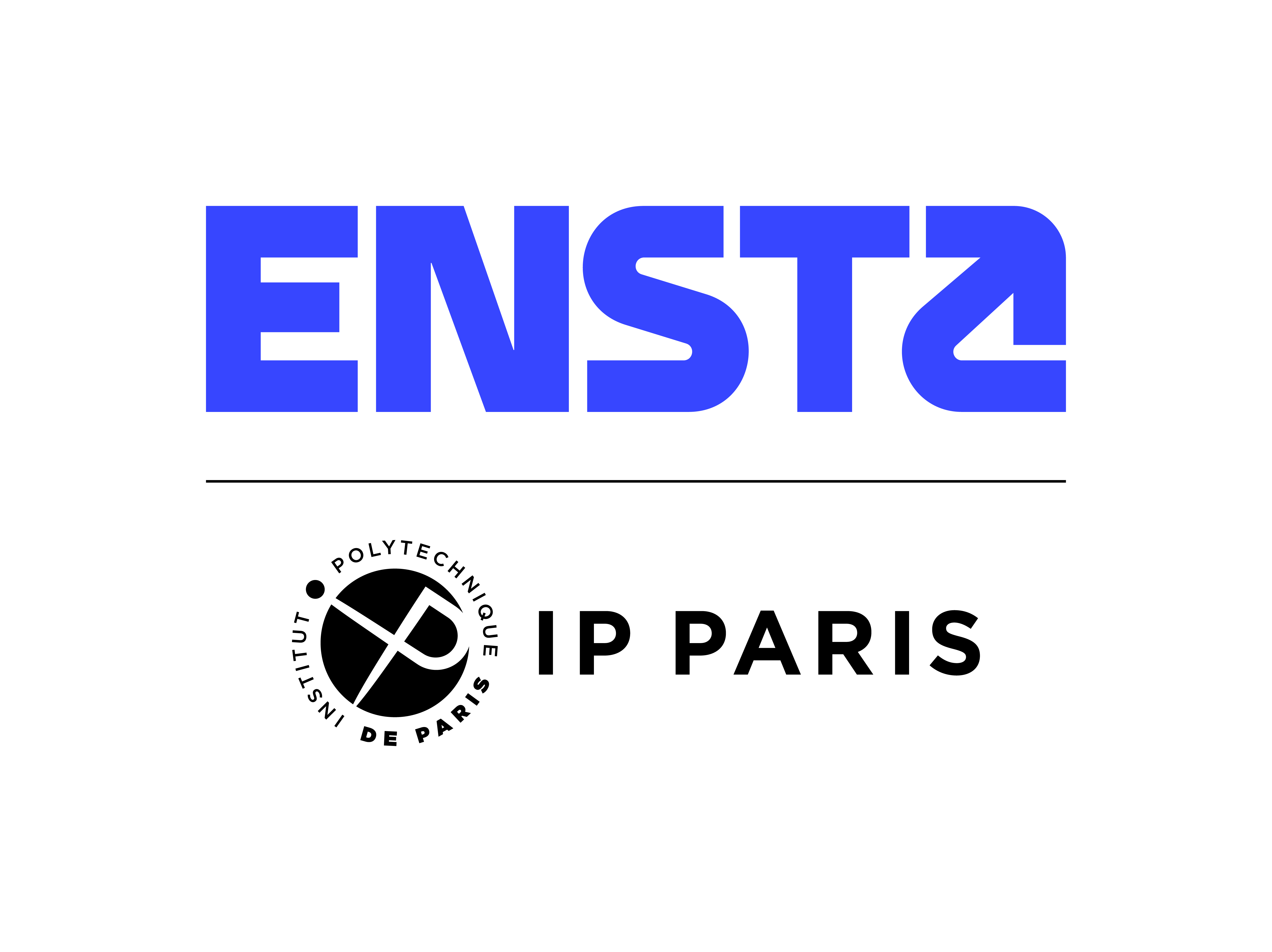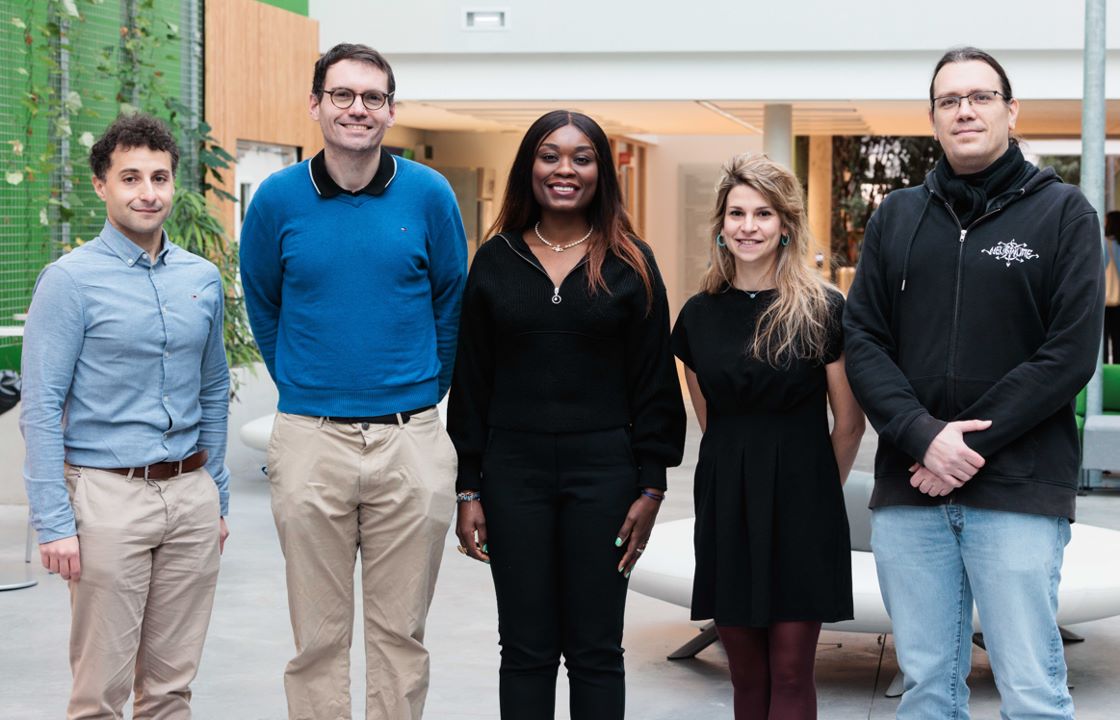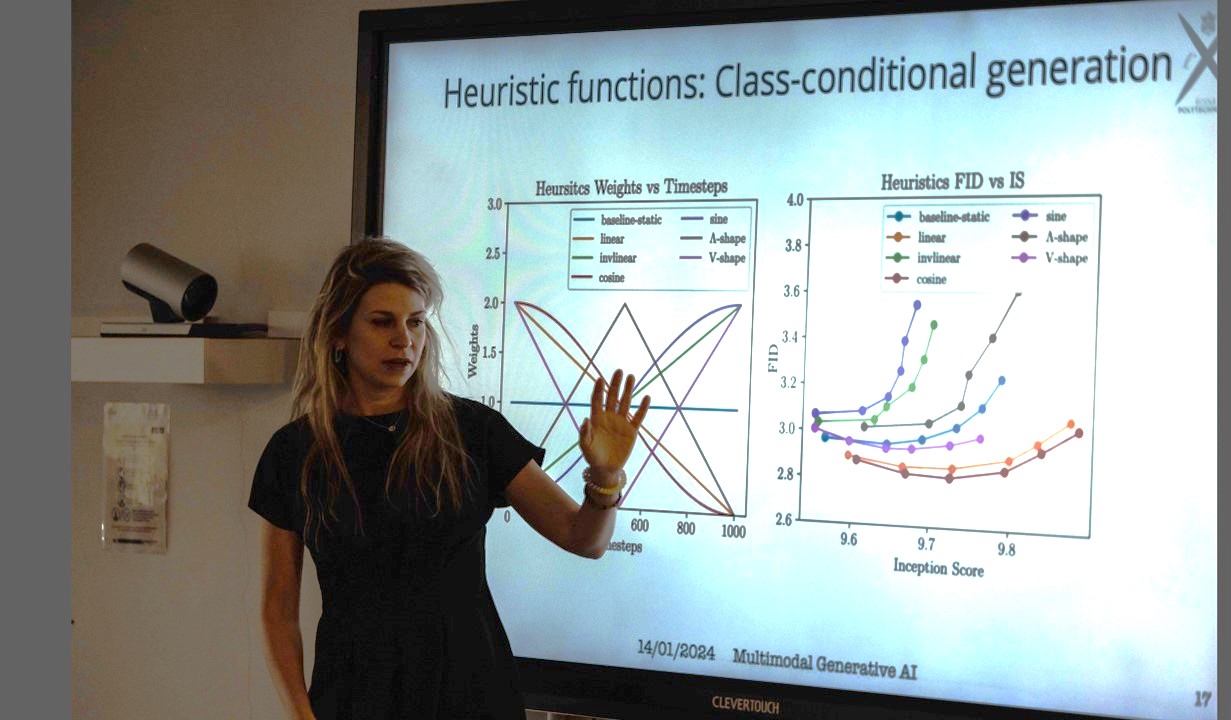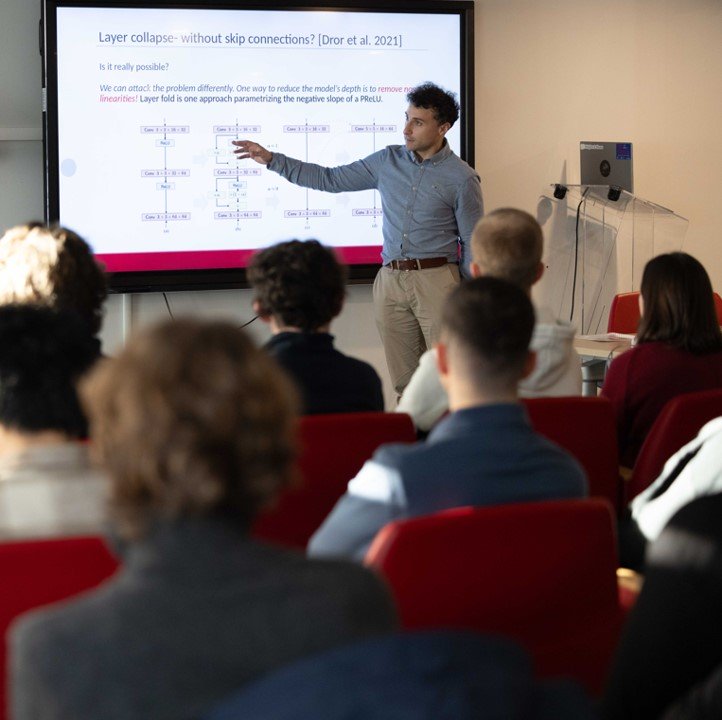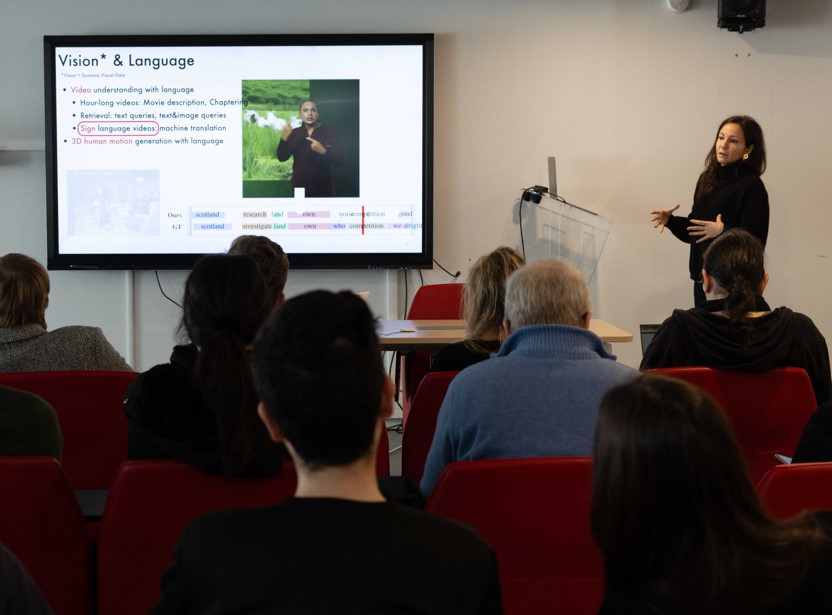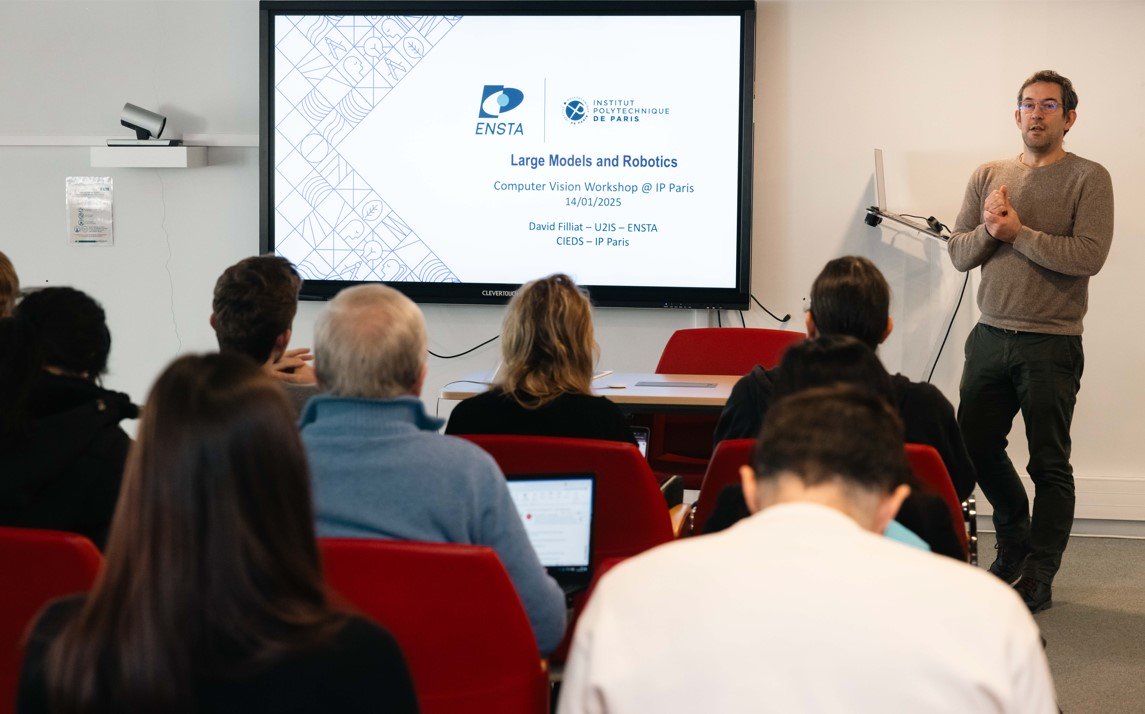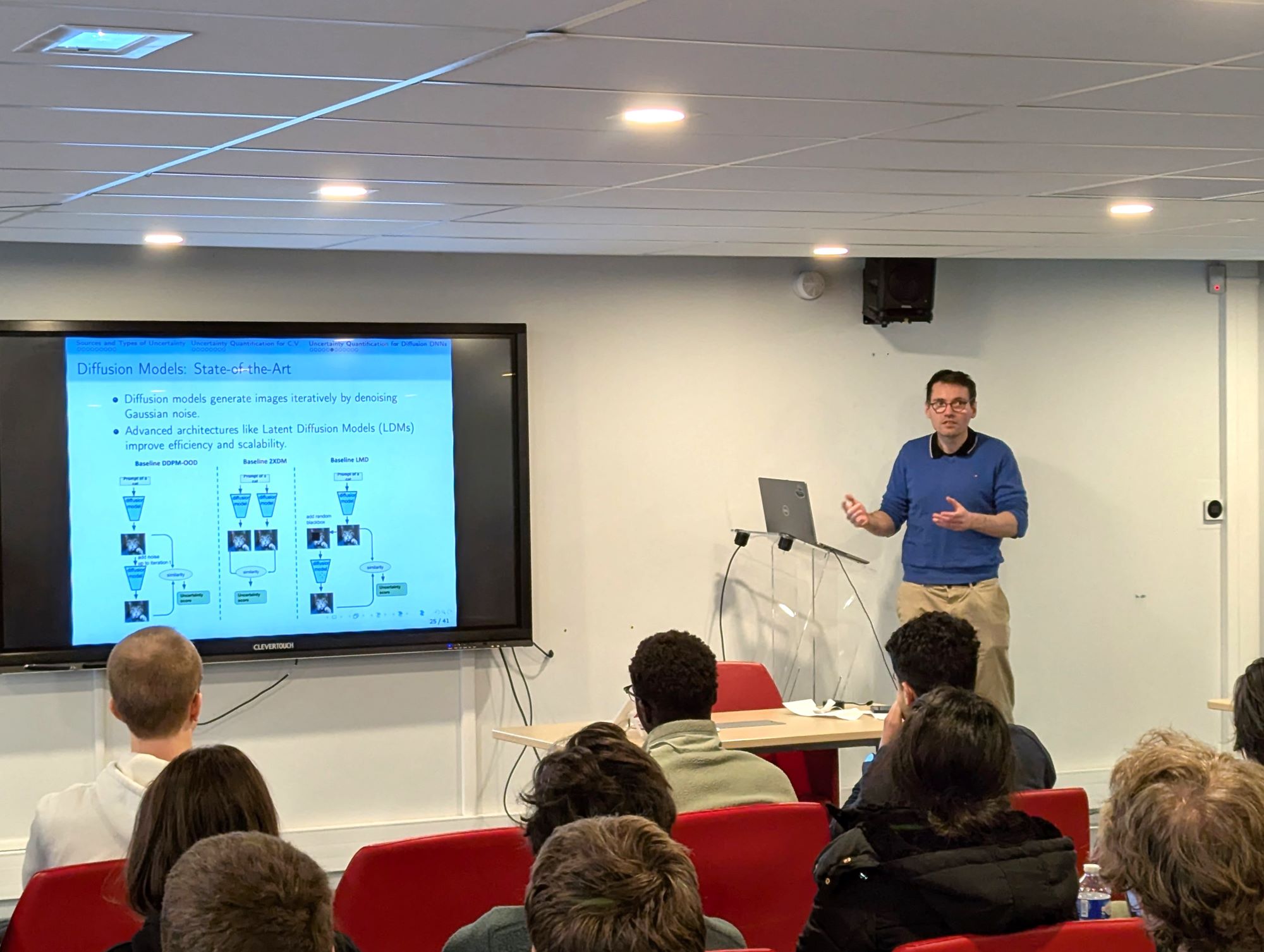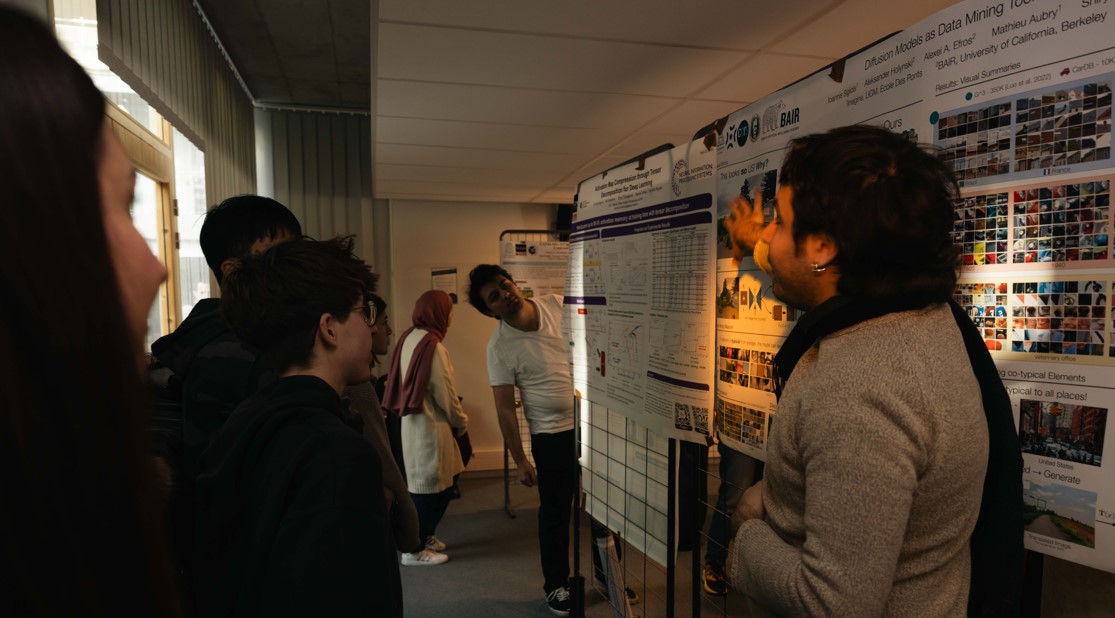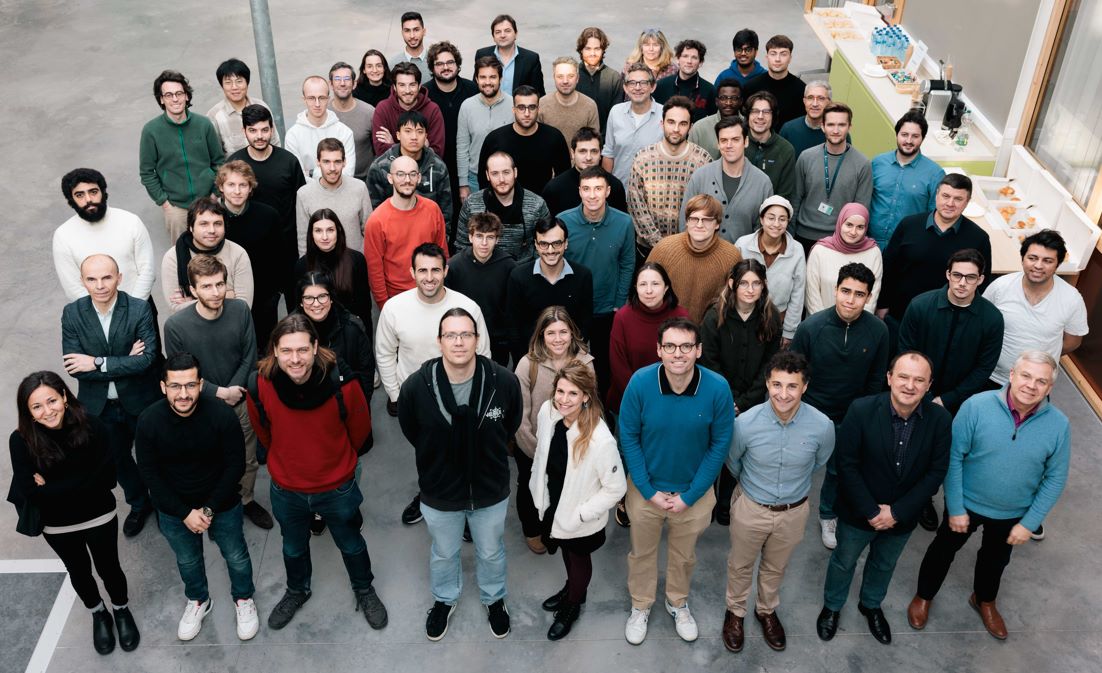Bringing together the skills of 6 of France's top engineering schools, the Institut Polytechnique de Paris boasts a strong community of internationally recognized researchers in the field of computer vision, as demonstrated by the award of 70 million euros to the Hi! project last May. PARIS Cluster 2030 project.
Enzo Tartaglione, Gianni Franchi, Fanny Sabatier, Vicky Kalogeiton and David Picard organized the first workshop on the subject on January 14, 2025, with the aim of bringing this community to life and facilitating exchanges between researchers, teacher-researchers, doctoral students and industrialists.
David Picard (ENPC) took over from him, presenting a new operation he has developed on how best to improve attention layers, a fundamental process in deep learning, so that they are more efficient.
He was followed by Titus Zaharia (Télécom SudParis) and his work with France Télévision on using AI to analyze images and generate subtitles and news banners.
Then Loïc Landrieu (ENPC) talked about attempts to produce a universal representation of geospatial data, before Christope Kervazo (Telecom Paris) closed the presentations with his interpretable and scalable deep learning methods for inverse imaging problems.
Most of these presentations came from publications in A*-ranked conferences, giving PhD students attending the workshop free access to them.
Given the success of the workshop, a second edition is planned for early 2026.

